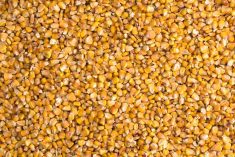Beijing | Reuters — China’s grains imports soared to record highs in 2020, customs data showed on Monday, after tight domestic corn supplies pushed prices to multi-year peaks, driving demand for cheaper imports.
China, the world’s top agricultural market, bought a record 11.3 million tonnes of imported corn last year, including 2.25 million tonnes in December alone, according to General Administration of Customs data.
Corn imports in 2020 were more than double the previous year’s volume and exceeded their annual quota, which was set at 7.2 million tonnes, for the first time.
Read Also

Alberta crop conditions improve: report
Varied precipitation and warm temperatures were generally beneficial for crop development across Alberta during the week ended July 8, according to the latest provincial crop report released July 11.
China also imported a record 8.38 million tonnes of wheat, against a quota of 9.64 million tonnes.
In 2019, China only used 67 per cent of its annual quota for corn and one-third of its quota for wheat.
China has accelerated buying of global grains in the past year due to healthy demand from a recovering pig sector, and a domestic shortfall in corn supplies.
Imports are expected to remain high this year for similar reasons, buyers and analysts said.
“Domestic corn prices are too high. We will continue to buy alternatives including imported corn, wheat and barley,” said a manager with a major feed and pig producer in southern China.
Chinese corn futures have rallied 40 per cent in the past two months and hit record highs last week.
The country’s corn supplies tightened after it sold off once mammoth reserves, while typhoons hurt the new harvest.
“It is widely expected China’s corn imports in the 2020-21 marketing year will exceed 30 million tonnes,” said a source with a global shipping firm.
High corn prices also pushed feed producers to stock up on domestic wheat as a substitute.
— Reporting for Reuters by Hallie Gu and Tom Daly.
















